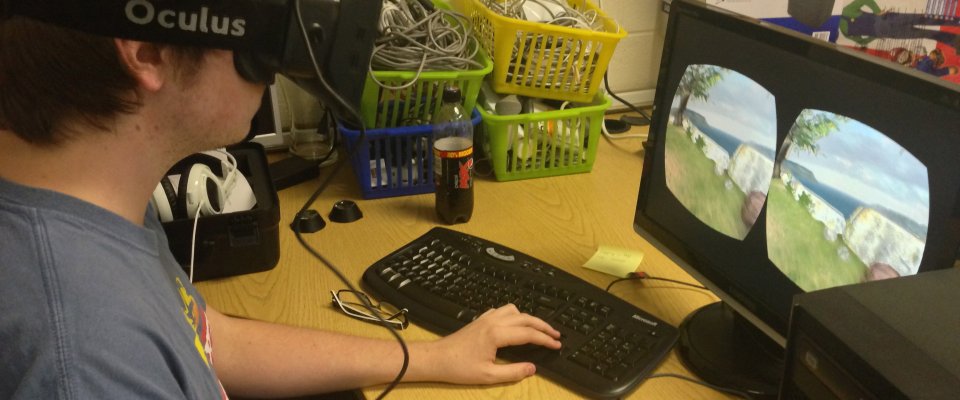Oculus Rift: Back to the Future for Virtual Reality?
Thu, 08 Aug 2013

Almost exactly 20 years ago I organised an exhibition of Virtual Reality technology at the HCI'93 conference at Loughborough University. On display were input devices such as hand tracking gloves and 3D mice and various 3D displays, most notably the classic VR headset.
At the time VR was 'the next big thing', and it was assumed that we would soon all be be sitting around with VR headsets on whilst living and working in'virtual worlds'. Of course, this didn't actually happen quite as predicted. Instead, the other 'next big thing' of the time - the World Wide Web - ended up changing the world instead, and the 'virtual worlds' we live in tend to be accessed through smartphones, not 3D headsets.
Roll on 20 years, though, and we might possibly be on the verge of seeing the VR headset enter the mainstream. I've just had a play with a new Virtual Reality headset called the Oculus Rift. The device is aimed at gamers and improves on the old VR technology in a number of ways. Firstly, the pixel resolution is reasonable. Meaning that the images it display actually resemble the real world (although there is still a long way to go before we reach 'retina' levels). Secondly it is lightweight. Improvements in optics and screen technology over the years have led to something that weights a few hundred grams, not the kilograms of the original headsets. The head tracking is fast and light too and does not require a large sensing rig to make it work. Finally, it is cheap. At around £200 it is a hundredth of the price of professional VR headsets in 1993 and it will probably be possible to reduce this price even further. These factors, combined with the widespread support for the project in the huge gaming industry, mean that it just might take off.
Of course, it still may not be a technology ready for everyday use. 3D TV has been something of a mixed success, and I think VR is still likely to appeal more to a niche audience, better suited to certain types of gaming rather than general computer use (I don't think Virtual Reality supermarkets are on the cards). Plus, what will the ergonomic effects be when people start to use these devices for hours on end? Headaches? Vision problems?
I'm sure we'll know the answers to these questions in another 20 years.
Information about my HCI'93 exhibition, with photographs and the original website, can be found in my archive at ./virtual-reality.html. More information about the Oculus Rift (including how to order a developer kit) can be found at http://oculusvr.com.

